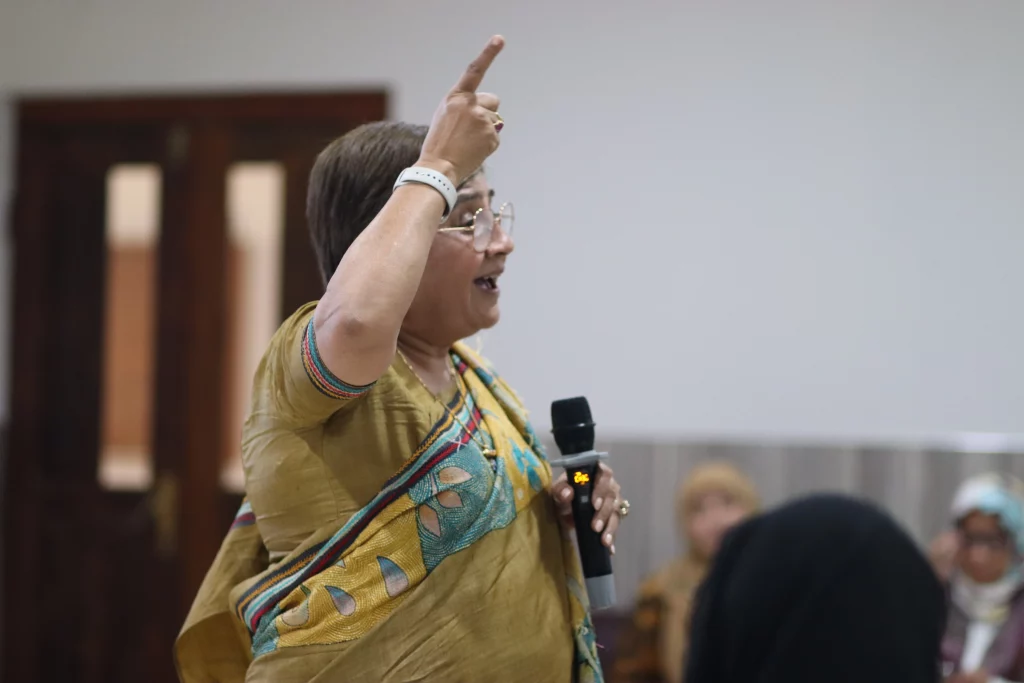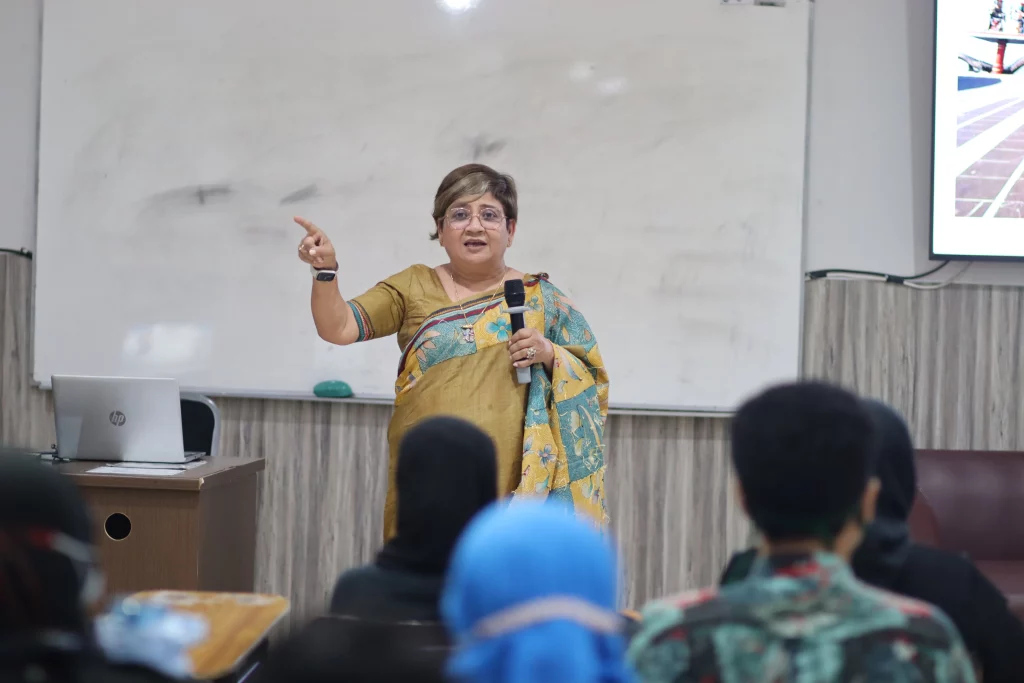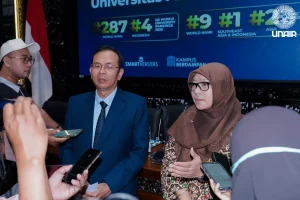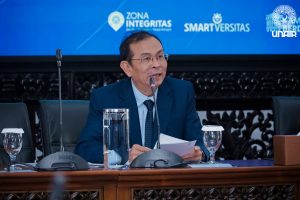UNAIR NEWS – The English language and literature department, the Faculty of Humanities (FIB), Universitas Airlangga just held a guest lecture on “Gender and Space: The Case of Urban and Cosmopolitan New Delhi” on Friday, May 24, 2023. The lecture was held at the Herodotus Room, the Faculty of Humanities Building, Dharmawangsa-B Campus. Prof. Dr. Seema Mehra Parihar from the Kirori Mal College, University of Delhi, India attended the lecture as the speaker.
Prof. Seema defined the term “gender” in society. She believed that the term poses a long history with a wide range of contexts.
“In popular language, people often equate the terms ‘gender’ and ‘sex’. Although biological terms for sex can be the basis of gender, both are different,” she said.
The difference
The term ‘sex’ shows the biological differences between men and women, while ‘gender’ pertains to individuals’ understanding of their roles as men and women. Those understandings are mostly built by the social structure.
Furthermore, the University of Delhi professor believed that gender must involve the community’s behavior in creating, building, and respecting the idea of femininity and masculinity.

She said, “The term is often misused, even to differentiate between men and women as biological beings. The gender ratio is opposed to the sex ratio. It should be noted that sex and gender are no longer seen as independent objects. This overlap leads to situations where people who feel that their gender identity does not align with their biological sex are identified as ‘intergender’.”
Limited roles
Not only did Prof Sheema express the meaning and formation of gender, but she also explained the condition of Indian women who have limited and unequal roles compared to men.
“There is still much debate about the binary division of public and private spaces as a result of the reinforcement of ideologies in the hands of women through spatial configurations,” she concluded.
For example, agricultural work is often performed by women while they carry their children to the fields. In contrast to some urban locations where public spaces are predominantly dominated by men.
Thus, she believed that space is no longer perceived solely in abstract, subjective, or discursive terms, but it possesses existential reality. As a result, the epistemological tensions or boundaries between space (non-real) and place (real) become increasingly blurred.
“There is a framework in such a way that within the framework, space, and place interact with each other. This opens up the potential for critically engaging with gender and patriarchal structures. This is how the gender domain is enacted, shaped, and reconfigured through mediation with specific spatial contexts,” Prof Sheema said.
In the end, she suggested that it is important to learn about gender, especially for women, considering the amount of discrimination women encountered, including harassment in private and public space.
Author: Aidatul Fitriyah
Editor: Binti Q Masruroh









